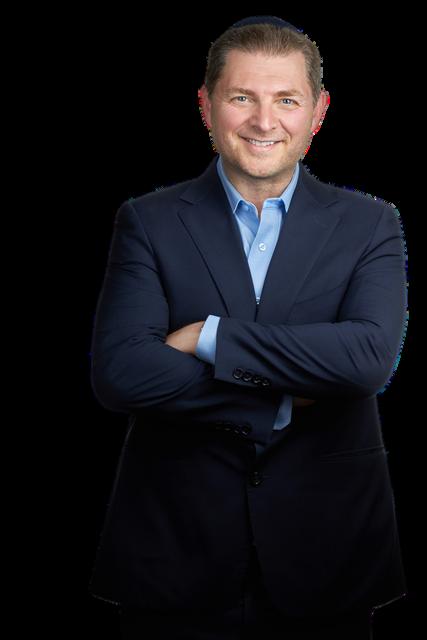






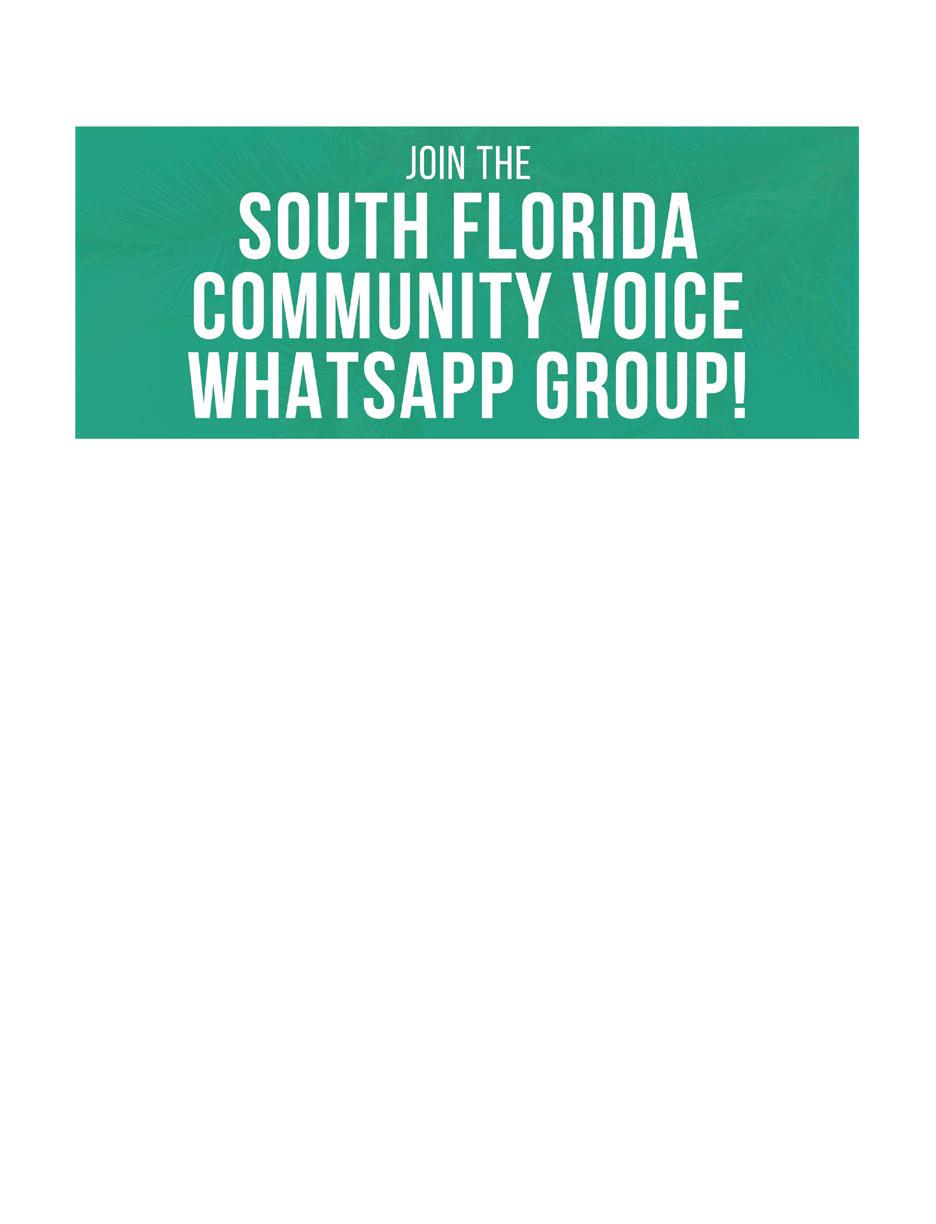









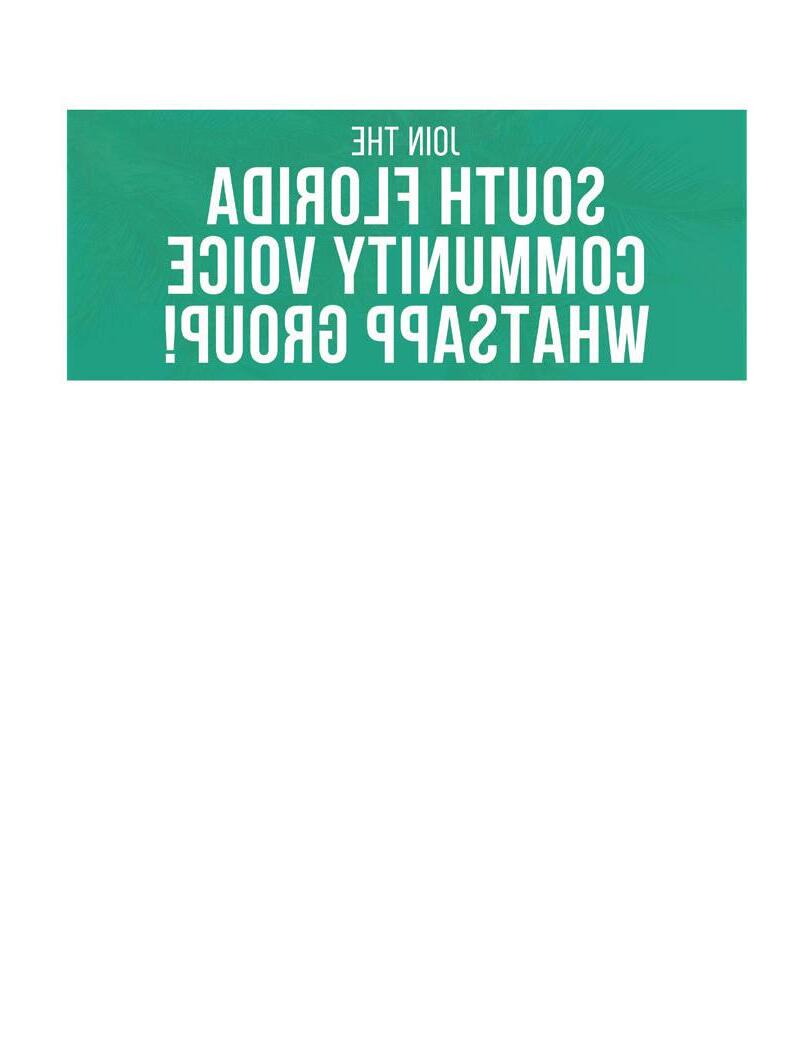
























Experience your favorite Israeli breakfast memories with Tnuva.




































































































































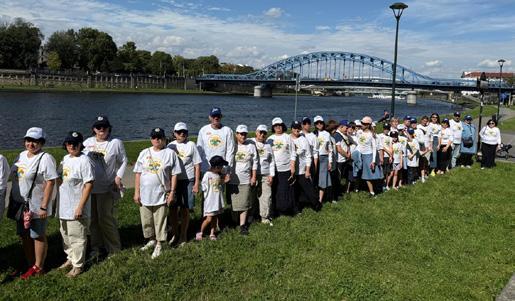
© The South Florida Community Voice Magazine. All rights reserved. Reproduction in printed or digital form in whole or in part in any form without prior written permission is prohibited. The publisher reserves all right to edit all articles for clarity, space and editorial sensitivities. Submissions cannot be returned to sender. The South Florida Weekly Magazine is not responsible for the cash flow of any advertised product or service that appears in these pages. The South Florida Community Voice Magazine assumes no responsibility for the content of articles or advertisements in this publication, nor for the content of books that are referred to or excerpted herein.











By Sivan Rahav Meir
Many of us can recite the pre-flight safety instructions by heart, but on my recent trip to London, one sentence stood out: “In case of emergency, put your own oxygen mask on first, before assisting your children or anyone else sitting next to you.”
Such a simple, yet profound idea: first, secure your own wellbeing. This is not selfishness, but common sense. If you don’t take care of yourself, you cannot take care of others.
Parents who are calm and happy are better able to care for their children. When they also nurture their relationship as a couple, the whole family benefits. The same is true in every area of life: we need to “fill our own cup” in order to have something to pour for others. If our cup is empty, we have little to give. Especially in times like these, with all the struggles and challenges we face, we must remember: prioritizing your body and soul is not shameful. It’s vital.
One of the hardest feelings, especially now, is uncertainty. We don’t know what tomorrow will bring, and so many people search for answers that can guarantee the future.
But the Torah rejects the notion that everything is predetermined and that we need fortune tellers, mystics, or idols to reveal what lies ahead. Instead, this week’s parashah teaches: “You shall be
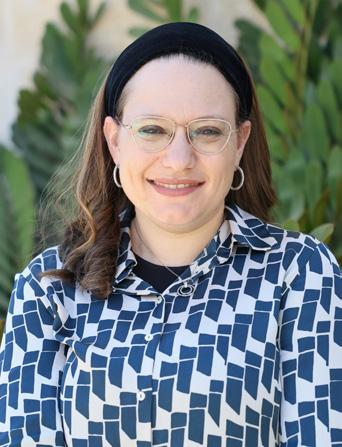
wholehearted with the Lord your God.” In other words: live with integrity, in the present, without obsessing about what tomorrow may bring.
Judaism affirms free will — our capacity to change, to repair, to choose a better path and thereby shape a better future. The future is not sealed; it depends on our deeds and intentions.
This is the essence of Elul, the month of teshuvah, forgiveness, and atonement. Every year we are given a gift: the chance to begin again. God believes in us, believes we can change, and in these days extends a special closeness to anyone who reaches out to Him.
So, what’s next? The real question is: What will we do next? This year especially, it is essential not to despair, but to remember that our choices and our actions are what truly determine what happens next.
Parashat Shoftim: Translating Hebrew to Hebrew
I remember it vividly. I was fourteen, sitting in shul, listening to the rabbi speak with passion and fire — and not understanding a word. He quoted the opening verse of Parashat Shoftim: “You shall set up judges and law enforcement officials for yourself in all your cities that the Lord your God is giving you.”
He explained that just as cities need judges and officers at their gates, so too each of us must place “guards” at the personal gates God created for us: our eyes, our ears, our mouth. We must watch what we take in — what we see, hear, consume — and be just as careful about what we let out — the words we speak.
But at fourteen, it felt like a foreign language. The Hebrew of religious discourse was so different from the Hebrew I knew. The rabbi leapt between the Written Torah and the Oral Torah, and I was lost. I didn’t realize that almost every verse carries an educational message — sometimes obvious, sometimes hidden.
Then the girl next to me whispered: “The Torah speaks of guarding the gates of a city. The rabbi is using it as a metaphor. We also need guards at our own gates — to think about the programs we watch, to avoid gossip, to speak kindly.” Suddenly it all made sense. Ever since, whenever we reach Parashat Shoftim, I remember that moment — and the ongoing

challenge of bridging the gap between two Hebrew languages, making the Torah’s lessons clear, close, and accessible to everyone.
In this week’s parashah, the Torah commands us to establish arei miklat — cities of refuge. Someone who committed an accidental killing could flee there, finding both protection and the chance to rehabilitate before rejoining society as a new person. It’s a concept foreign to modern criminal law. A city of refuge was not a prison, but a place of safety and re-education, where life could
begin again.
For centuries, commentators have also read this as metaphor. The chassidic approach compares the month of Elul — the month before the High Holy Days — to a city of refuge. Fittingly, Parashat Shoftim, which speaks of these cities, is always read during the first week of Elul.
Most of us know the famous acronym for Elul: Ani ledodi vedodi li — “I am my beloved’s and my beloved is mine.” But there is another, less familiar acronym, drawn from Shemot 21:13 in the context of the accidental killer: ina leyado vesamti lekha makom

— “God put it into his hand, and I made a place for you.”
Elul is our annual “city of refuge” — a time to pause, reflect, and admit what has slipped from our hands: the careless words, the wrong turns. It is our chance to repair and return.
Let’s bear in mind that there are two other “cities of refuge” available to us not only in Elul, but every day of the year: Torah study and prayer.

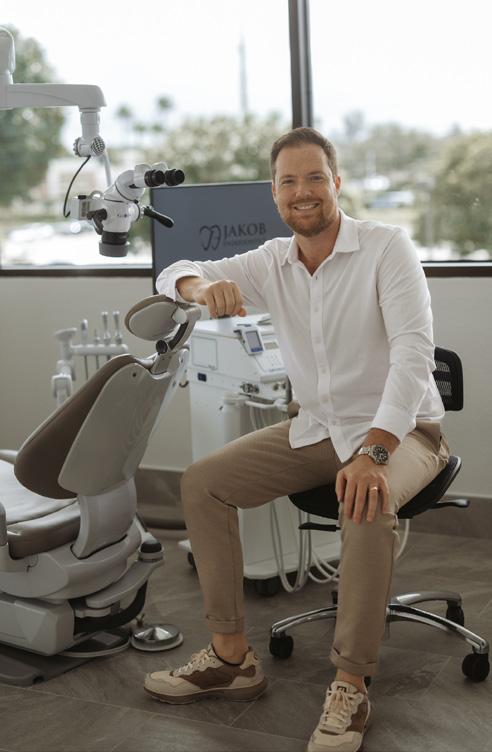











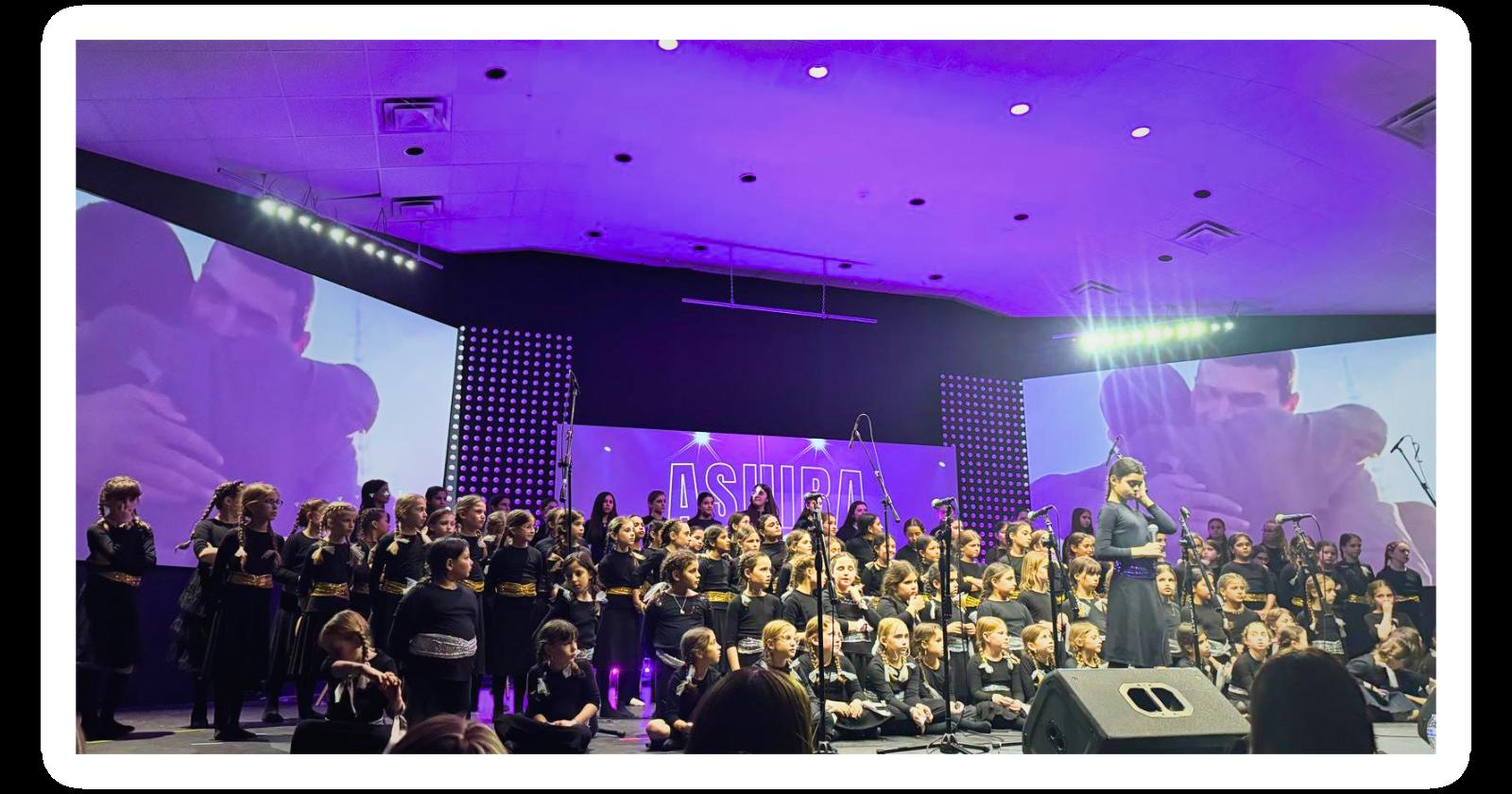



With new leadership at Cornell, NYU, Columbia/Barnard, Princeton, Brandeis, University of Chicago, and Rutgers, the Orthodox Union’s Jewish Learning Initiative on Campus builds on a successful growth model to strengthen Jewish community life and religious engagement on college campuses
JLIC Cornell co-directors Yakira and Rabbi AJ Baumol.
Rabbi AJ and Yakira Baumol didn’t set out to work full-time in Jewish education.
While both of their fathers work at Israeli institutions of higher learning for gap-year students — AJ’s dad is a rabbi at Midreshet Torah v’Avodah (MTVA), and Yakira’s father is a rabbi at Yeshivat Reishit Yerushalayim, while her mother is a yoetzet halacha — the couple, now living in Ithaca, New York, was on an entirely different career trajectory.
After college, Yakira worked as a corporate lawyer and AJ at an Israeli tech startup while raising their daughter, Amiya, now 20 months old. For four years, they lived on the MTVA campus in Jerusalem, where they regularly hosted seminary students and where Yakira led a nightly Gemara class.
Then October 7 hit, and their priorities shifted.
“After October 7, we felt that we should take opportunities to engage in things that we find meaningful in a more active and serious way,” says AJ, who was raised in Efrat. “Growing up, we

greatly appreciated our parents’ involvement in Jewish education and realized that we want to emulate these values for our family. October 7 reframed and inspired us to prioritize certain values over others and to give a more central role to limmud Torah, Jewish community, and continuity.”
Their opportunity came in the form of a co-director position at Cornell University’s JLIC. A division of the Orthodox Union, JLIC’s mission is to create a movement of vibrant Jewish life among emerging adults aged 18 to 30 through transformative leadership development, innovative educational programming, and meaningful engagement opportunities. JLIC empowers the next generation of leaders who will inspire and strengthen the Jewish community worldwide.
Since its launch in 2000 by Rabbi Menachem Schrader, JLIC now serves over 8,000 Jewish students across 35 campuses and communities in the U.S., Canada, and Israel every year. Within the vast college campus environment, JLIC fosters Jewish student development by providing mentorship, religious support, and leadership platforms, alongside avenues for volunteer-
ing, communal engagement, and personal growth. These include engaging Torah study, halachic and spiritual guidance from the JLIC campus directors, innovative educational programming, Shabbat and holiday meals and celebrations, daily minyanim, regular social events like shabbatons and Friday night onegs, sports, Israel-themed and advocacy-based activities, and visits from renowned speakers.
Beginning this fall, the Baumols are among seven couples taking on new JLIC positions at flourishing campus programs. Their fellow incoming directors include Rabbi Zechariah and Elyanna Rosenthal at NYU, Rabbi Daniel and Jasmine Peled-Schwartz at Columbia/ Barnard, Rabbi Matthew and Yael Nitzanim at Rutgers, Rabbi Ari and Noa Bar-Shain at Princeton, Rabbi Joel and Jenny Finkelstein at Brandeis, and Rabbi Ariel and Maayan Lavi at the University of Chicago.
L to R: Columbia/Barnard JLIC co-directors Jasmine and Rabbi Daniel Peled-Schwartz; Rutgers JLIC co-directors Yael and Rabbi Matthew Nitzanim; Princeton JLIC co-directors Rabbi Ari and Noa Bar-Shain; and JLIC Brandeis codirectors Jenny and Rabbi Joel Finkelstein.
JLIC Chief Operating Officer Tal Attia says the recruitment process for campus directors is highly intentional.
“We spend months getting to know each candidate,” she says. “We’re not just filling a position;


we’re finding the right people to become part of these students’ extended families. Having served as a campus co-director myself, I know firsthand how crucial that personal connection is. We look for directors who can create a home away from home for students, and we match personalities, campus cultures, and community needs. We take our time getting it right.”
Coming from Israeli universities, where campus culture is markedly different, the Baumols were pleasantly surprised when they first visited Cornell’s JLIC, which draws about 100 students and young professionals to its programs and events.
“We didn’t know what to expect,” says AJ. “We had never been to an American college campus before. We were really touched by the students’ hospitality, warmth, and genuine interest in sharing their thoughts and getting to know us. There was something truly authentic and meaningful about our interactions, and we were incredibly moved by the community.”
JLIC Executive Director Rabbi Josh Ross is enthusiastic about the new directors, whom he sees as passionate educators and community builders who will shape the next generation of Jewish leaders.
“Our new directors aren’t just joining programs,” he says. “They’re stepping into vibrant Jewish communities that have been carefully cultivated over years. What’s beautiful is watching them honor that legacy while bringing their own creativity and passion to the table.”
Recognizing Cornell’s longstanding JLIC history, the Baumols plan to respect and build upon its existing foundation.
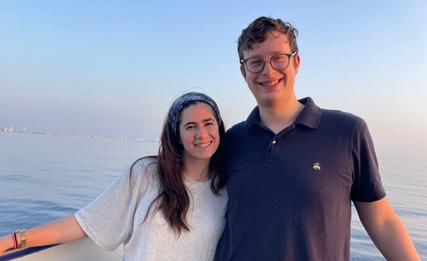
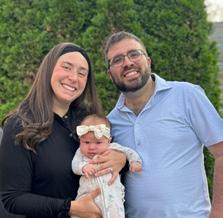
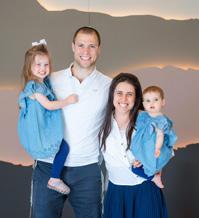
“JLIC Cornell has been around for years and has developed its own way of doing things that work beautifully,” says Yakira. “So before we implement any changes, we want to understand the community, the students, and their needs. We hope to cultivate relationships built on substance and depth; relationships that will definitely enhance our lives, and hopefully, the students’ lives as well.”
Like the Baumols, Rabbi Zechariah and Elyanna Rosenthal were drawn to the JLIC co-director roles at NYU as a means to bring greater purpose and fulfillment into their lives.
“I began my career in corporate America and at some non-profits,” says Elyanna, who grew up in Passaic, New Jersey. “A couple years in, I realized I was looking for something more.”
For the past two years, the Rosenthals lived in Jerusalem, where Zechariah earned semicha at the Caroline and Joseph S. Gruss Institute kollel, and Elyanna taught Jewish Philosophy and
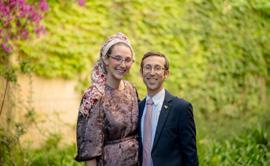
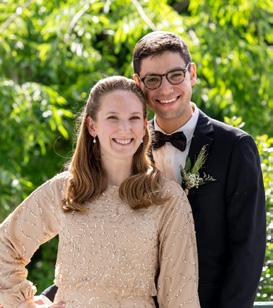
among other academic pursuits.
“I found teaching so fulfilling,” Elyanna reflects. “It meant so much to be able to support people on the cusp of adulthood who are exploring religious, social, and emotional questions about their futures. OU-JLIC is the perfect fit for me because it allows me to continue on this same path of purpose and connection.”
Born in Plainview, New York, Zechariah views the JLIC codirector position as a continuation of his family’s legacy.
“Both my grandfather and father made Jewish education their life’s mission,” he says. “I’ve always been inspired by their model of dedication—working as school principals, teaching, engaging in outreach, and learning with me every day when I was growing up. The role of JLIC co-director is an amazing opportunity to give back and continue that tradition.”
In 2023, in preparation for their new roles, the Rosenthals participated in the JLIC Fellowship for Campus Professionals, a year-
long training program for couples interested in working with North American college students.
“The fellowship was a great way to get a window into campus life,” says Zechariah. “We even got to ‘sub in’ for a Shabbos on campus while an JLIC director was called up to reserve duty, and we experienced the initiative’s amazing impact in person. The fellowship helped solidify our interest and confidence that this was the right opportunity for us.”

The Rosenthals look forward to building relationships within the NYU JLIC community where over 250 students and young professionals actively participate in JLIC programming.
JLIC NYU co-directors Elayanna and Rabbi Zechariah Rosenthal.
Zechariah and Elyanna are excited to host students for Shabbat meals and events and to explore all that New York City has to offer together. Above all, they are deeply inspired by NYU students’ Jewish pride, curiosity, and openness to learning.
“These students are at a turning point in their lives and are exploring their values and Judaism with fresh eyes,” says Zechariah. “I’m excited to support their growth and connection with Judaism, with us, and with one another.”
Rabbi Ross adds, “We’re thrilled to welcome this incredible group of new directors to the JLIC family. Each of them brings such unique energy and vision to their campuses, and I’m genuinely excited to see how they’ll build on the amazing foundation their predecessors created.
Contact: Josef Katz
Director of Marketing & Communications, JLIC 201-921-3292 | katzj@ou.org
About JLIC: JLIC is a program of the Orthodox Union that supports Jewish students and young professionals across North America and Israel via religious, educational, and social programming. Trained rabbinic couples on college campuses serve as Torah educators, role models, and community leaders and empower students as they navigate the college environment, taking their first independent steps into Jewish adulthood. JLIC also offers summer and short-term Israel programs featuring professional internships, Torah study, volunteering, travel, and leadership training.
About the Orthodox Union: Founded in 1898, the Orthodox Union (OU), or Union of Orthodox Jewish Congregations of America, serves as the voice of American Orthodox Jewry, with over 400 congregations in its synagogue network. As the umbrella organization for American Orthodox Jewry, the OU is at the forefront of advocacy work on both state and federal levels, outreach to Jewish teens and young professionals through NCSY, Israel Free Spirit Birthright, Yachad and OU Press, among many other divisions and programs.

Soak up the sunshine, slow down the pace, and savor
suites, The Altair is where carefree days meet elevated comfort. Whether you're taking a sunny escape with friends or finding your own slice of serenity, this is the summer escape you’ve been craving.
WASHINGTON, D.C. — The Orthodox Union Advocacy Center (OUA) applauds the Department of Homeland Security’s announcement today, awarding $110 million to more than 600 faithbased and nonprofit organizations through the Nonprofit Security Grant Program (NSGP).
“This funding is more than dollars, it’s a shield for Jewish and religious communities across America,” said Nathan Diament, Executive Director of the Orthodox
Union Advocacy Center. “At a time of exploding antisemitism and with the High Holidays on the horizon, this funding provides the concrete support institutions need to remain safe and resilient.”
NSGP funds, administered by FEMA, can be used for a variety of security enhancements, including surveillance cameras, access control systems, gates and lighting, alert systems, and staff training. The program provides critical support to Jewish institutions and
a wide range of other faith-based organizations across the United States.
OU Advocacy helped launch NSGP in 2004. It continues to advocate for increased funding in this time of unprecedented antisemitism and guide Jewish institutions in accessing and using these funds.
For more information about the Orthodox Union Advocacy Center and its initiatives, visit: https:// advocacy.ou.org.

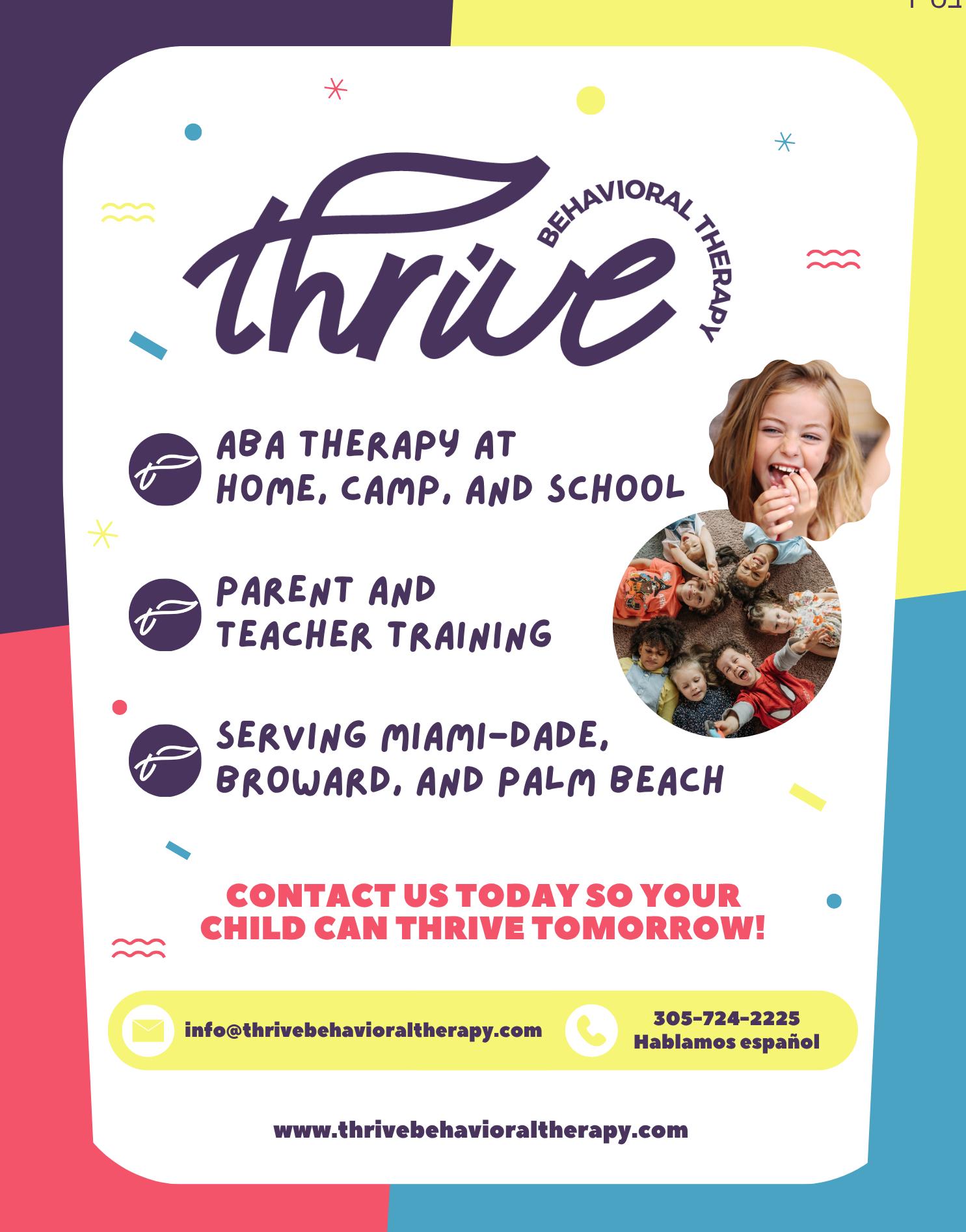
By Jill Lewenstein
On the morning of October 11, 2023, just four days after the deadliest terror attack in Israel’s history, Gila Tolub stood in her kitchen with her 15-year-old son, baking challah to help the soldiers. The dough needed 45 minutes to rise. Learning that it would take so long, he became impatient and walked off. She was exhausted and had not braided challah in 20 years. It was at that moment that she turned to her husband and said, “We are going to lose the war.”
She wasn’t talking about tanks or missiles. She was talking about mental health.
“The staffing model does not work,” she said of her braiding challah instead of using the skills she developed in her 12 years as a management consultant at the leading firm McKinsey & Company, a role she had left just three months earlier. That moment, flour still on her hands, became her turning point. She realized the war for Israel’s emotional survival required something it did not yet have: coordination, strategy and innovation. But most of all, it needed a plan.
“Israel needed to manage the trauma instead of allowing the trauma to manage us,” she said.
Almost two years later, that realization has become ICAR Collective, Israel’s Collective Action for Resilience, and
Tolub is its tireless co-founder and executive director. With a vision that fuses her healthcare expertise and systems thinking with deep empathy for human suffering, Tolub spearheads what may be one of the most ambitious mental health undertakings in the country’s – and the world’s –history.
When Hamas attacked on October 7, massacring more than 1,200 people, including hundreds of young Israelis at the Nova music festival, the psychological damage extended far beyond the battlefield. “Even people who were not directly impacted were deeply affected,” Tolub said. “The entire country was in a state of trauma. And we did not have a blueprint.”
For the first few months after the attacks, Tolub led The Healing Space (Merhav Marpe), a sanctuary formed overnight to support Nova survivors and their families. What was meant to be a small gathering space quickly drew hundreds of survivors, too broken to talk, too traumatized to sit still.
“No one wanted to sit in circles and speak,” she remembered. “So we just let them be. Sit together. Move. Play. Cry. Reconnect. And above all, reclaim their power to make choices.
“You cannot force healing,”
Tolub insisted. “But you can create the conditions for it.”
That philosophy now fuels ICAR Collective.
ICAR Collective was born not only out of compassion but out of need. Israel’s mental health response, though passionate, incredible and quick, was deeply fragmented. Over 400 organizations mobilized, but all too often, each operated in its own vacuum, serving specific groups of survivors and others impacted by the attack and ensuing war. There was no single source for data, shared strategy or common standards.
As a veteran consultant who co-led McKinsey’s global vaccine practice and helped shape health equity policy with the World Health Organization, Tolub saw the problem through a public health and management lens.
“After COVID, we had the global infrastructure to get vaccines out at unprecedented speed. Why? Because we coordinated,” she said. “Mental health deserves the same urgency. It is not a soft issue. It impacts security, productivity, physical health, the economy and every sector of society.”
ICAR Collective is building that infrastructure. It is not a frontline service provider. Rather, it is what Tolub calls “the backbone organization,”


coordinating across government, NGOs, academia, and tech to design a scalable model for trauma recovery. It is working together with and building upon the impact of each of its partners, each member of its scientific advisory board and each philanthropic funder, from the largest foundations to individuals, are already making in Israel’s recovery and resilience.
“Our Scientific Advisory Board has been indispensable,” Tolub said. “They ensure that everything we do is grounded in evidence-based methods, clinical integrity and or promising innovation. Their expertise gives us the confidence to act boldly, knowing we’re aligned with what
actually works.”
At the heart of the effort are eight strategic imperatives, including a national resilience education campaign, a trauma-first aid curriculum, and a real-time mental health data dashboard. Two of these, the education campaign and dashboard, have been prioritized by ICAR Collective, and their development is already underway.
“If we do not understand what is happening in real-time – who is suffering, where the gaps are – we cannot act effectively,” she explained.
To understand ICAR Collective’s impact, consider its recent

summit in February 2025, which brought together 300 leaders from all sectors to align on trauma response. It was not just a conference but a collective act of hope.
Tolub’s approach to healing is both radically pragmatic and profoundly human. She talked about “triage models” and “capacity constraints” but also told the story of a Nova survivor who became paralyzed, not by bullets, but by terror. “She pretended to be dead for seven hours,” Tolub said. “Her nervous system did what it had to do to survive. That is brilliance, not weakness.”
ICAR Collective’s model acknowledges that trauma is not just emotional. It manifests in















autoimmune disorders, sleep disruption, job loss, school failure and even childhood shingles. “My own four-year-old got shingles after hearing a red alert siren,” Tolub said quietly. “This is not abstract. It is in our homes.”
“Philanthropic partners have stepped in (in these first 20 months) with a kind of courage that matches the urgency of this crisis,” she added. “They’ve enabled the field to move quickly, to train therapists, to fund groundbreaking research and build infrastructure where the public system simply couldn’t run with this on its own. Without that private capital at this stage, this wouldn’t be possible. And we are working to align this with government partnerships going forward.”
Tolub envisions ICAR Collective’s work as more than a national solution. It could become a template for global trauma recovery. “What we are trying to do here is not just for Israel,” she said. “It is for every society dealing with war, disaster, mass violence. Everyone is going to need this kind of infrastructure someday.”
Part of that vision involves using technology to expand reach; from AI tools translated into Hebrew to neurofeedback that can deliver relief in minutes rather than hours. ICAR Collective is also pushing for non-clinical caregiver training to address the massive shortfall in mental health professionals.
“Israel’s largest healthcare provider, Clalit Health Services, latest estimates suggest over half a million new PTSD cases. We simply do not have

enough therapists,” Tolub said. “We need to think differently: about triage, prevention and scaling healing.”
“The field itself—the therapists, educators, volunteers and caregivers—are the heart of this work,” Tolub emphasized. “They’re the ones delivering the healing touch. ICAR’s role is to make their job easier, faster and more effective by ensuring they’re not doing it alone.”
As Israel continues to navigate its physical and psychological war zones, Tolub and ICAR Collective are fighting on a different front. One that does not make headlines. One that takes place in quiet conversations, in community circles, in therapy rooms and in schoolyards.
She does not promise miracles. But she believes in resilience. “When they try to destroy us,” she said, “We survive, we heal, we rebuild. That is who we are. Am Yisrael Chai!”


MANDEL ESQ. ATTORNEY AT LAW





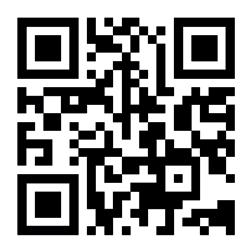



You may know from past experience that I write a Parsha sheet each week. I’ve been doing it since 1999, and I feel a tremendous sense of responsibility to complete it in a timely fashion, as well as providing original content each week. I have a specific time each week I send it out, and I hate being late. When I am, I feel under the gun to get it out and e-mailed or uploaded to where it goes.
One item I publish doesn’t affect the majority of my readers and subscribers. I include the Shabbos-related times for where I live. This way, in my house at least, we know when Shabbos starts and ends, as well as the times for reciting Shema and Shemona Esrai. I know some other people look at it too.
Well, this week, I made a mistake. I was rushing and forgot to update the times so they still showed last week’s numbers. While that wasn’t such a big deal for the end of Shabbos, it was a huge deal for the beginning because it showed candle-lighting ten minutes later than it should have been. When I caught this mistake, perhaps twenty minutes before candles, I was horrified. It was too late to do anything about it. I quickly updated the times and printed a few copies for my shul, but I was very shaken. What if I was responsible for someone violating Shabbos chas v’shalom?!
Now, in my defense, I was traveling this week. I was moving nonstop in a different time zone, barely sure of what day it was, and I mostly wrote the parsha sheet in an airport during a layover. It’s under-
By Rabbi Jonathan Gewirtz
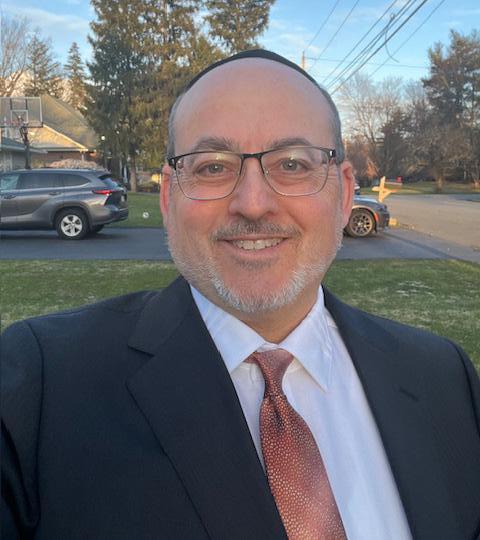
standable that I could have made this mistake, as I’m only human. I was tired, a bit muddled, and it’s not that big a deal; I mean, seriously, do I even know that anybody only relies on my times? There were certainly a number of possible ways to excuse the error. But I wasn’t having it.
It reminded me of a story. The Baal Shem Tov was once traveling on a Friday, and the roads were very wet and muddy. It was raining heavily and he finally arrived at an inn where he stayed for Shabbos. Upon his return, he mentioned to the Chasidim that he was afraid perhaps it was already Shabbos when he arrived there, as because of the darkness of the cloudy day he couldn’t tell for sure.
His Chasidim jumped to reassure him. “Certainly, the Ribono Shel Olam would not let such a tzaddik as you come to Chillul Shabbos, chas v’shalom! Surely it was only the darkness of the weather that made it appear later than it was.”
One chosid, however, remained silent. He was R’ Zev Wolf Kitzes,
known for his extreme piety and devotion to the Baal Shem Tov, as well as his acute truthfulness.
The Besht looked at him and asked, “Nu? What do you think?” R’ Wolf softly replied, “It would appear to me that the Rebbe must do Teshuva.” At that, the Baal Shem Tov’s face lit up.
“You see?” he asked the Chasidim. “You all claim to love me so much, but only R’ Wolf was honest enough to say that I should do Teshuva for perhaps desecrating Shabbos. He cares about me more than all of you!”
If I were to excuse what happened, I would not reflect on the matter and wonder why it happened. I would not regret what happened and try to prevent a reoccurrence. It appears to me I need to improve my shmiras Shabbos, or perhaps my kavod Shabbos, or something along those lines. I haven’t fully delved into it, but if I were to look for excuses, I would not think about it, nor wonder why Hashem made this happen. Everything happens measure for measure, and it’s up to us to look for our shortcomings and repair them.
Today, I read an amazing story. R’ Moshe Feinstein z”l used to daven and say Tehillim that he should pasken correctly when people sent him questions. Early one morning, during Summer break, R’ Moshe was seen walking outside and saying Tehillim. Someone asked him why he didn’t take advantage of the schedule change to sleep in a bit. R’ Moshe responded that he knows people from around the world send him questions and he needs to pray
that he not make mistakes and mislead anyone. (!)
R’ Moshe understood the gravity of his decisions, and knew he had to be correct. Not only would he not offer excuses for his mistakes, but he would take steps to ensure he made none (which included reviewing Shas and halachic works constantly.) I may not be R’ Moshe, but I am no less obligated than he to work on avoiding my own mistakes.
As we begin the month of Elul, we ought to take responsibility for our actions. Instead of excuses, let’s come up with solutions. Those will stand us in better stead when it comes time to be judged by Hashem. On Rosh HaShana, if we are able to say, “Yes, I found a problem; it was my mistake, but I’m making sure it will never happen again,” then Hashem will have no reason, and maybe even no excuse, not to grant us a sweet new year.
2025 – All Rights Reserved
Did you enjoy this column? Feedback is welcome and appreciated. E-mail info@JewishSpeechWriter.com to share your thoughts. You never know when you may be the lamp that enlightens someone else.
V&N Cleaning Service 561-860-0936
$10 off 1st cleaning, $10 off 2nd cleaning. We clean corners, not cut them!
Coolstar Air Service llc A/C Install & Repair (954) 200-1369 | coolstarair@yahoo.com
SEAMSTRESS
Alterations, Dressmaking, including wedding clothes. Phone: (646) 413-4542
IT Tech Support & Low Voltage Services 561-331-1680 | barry@navonpro.com
Jewish telehealth therapist for anxiety & bitachon Experienced serving the observant Jewish community. Insurance accepted. TV wellness expert with new Florida practice. (303) 720-1424 l heather@drheatherhans.com
Quick Diagnosis Telemedicine 561-299-0496 | myquickdiagnosis.com
Dynamic, Comfortable, Low Bulk FOOT ORTHOTICS Excellent for balance, sports and pain relief. Rochelle Silberman, Concierge Orthotist Call or Text (917) 494-1111
Most affordable housing in the entire state Esformes Hebrew Academy of Ormond Beach
CLASSIFIED
List your local business, services available, real estate opportunities, Help Wanted, & more!
Basic listing: $10/weekName, number and email address
Enhanced listing: $25/weekUp to 25 words
(additional words $1/each)
Deadline:
Tuesday at 4pm for next week's issue
Contact: andrea@tsfcommunityvoice.com
• Elementary teacher
• Office manager
• School Event Coordinator
• Drama and Music, Coach
Part-time and full-time positions
Quiet suburb School and shul community
EsformesHebrewAcademy.org
Email resume to chanidaytona@gmail.com
To place a Business Directory/Classified Listing contact: andrea@tsfcommunityvoice.com
It was a picture-perfect Erev Shabbos in a cheerful home. The aroma of freshly baked challah and simmering chicken soup filled the air. The house was spotless, the table elegantly set, and the excitement was palpable. This wasn’t just any Shabbos—it was the first time the kallah would be hosting her chassan at her family’s home. He is flying in from out of town and will be spending time with them— his first time in south Florida. She had prepared carefully—a new dress laid out, the table arranged with care, and a hopeful heart ready to welcome this special Shabbos. Everything was in place for a beautiful, memorable evening.
After finishing Mincha and davening Kabbolas Shabbos with intention, the kallah accepted Shabbos early, as was her custom. She paused for a moment, savoring the calm and kidushah that filled the room.
Then she glanced into the mirror—and froze.
Her face was bare. Completely bare.
She had forgotten to put on makeup.
The Moment of Panic
Her eyes widened with worry. “Ma…” she yelled. “I forgot to put on makeup!”
Her mother in shock run upstairs and looked at her, surprised. “But you still have time till Shabbos, what’s the problem!”
“I accepted Shabbos already,” the kallah said in a teary voice. “I can’t put on anything now.”

The emotion in her voice was clear—it wasn’t about vanity, but about feeling composed and confident in this new chapter of her life. For her, this was a deeply personal moment.
Seeing her daughter so upset, the mother sprang into action. “This is serious,” she said. “If this isn’t a pikuach nefesh moment for a kallah, what is!? I know just who to call.”
She picked up the phone and called the Refuah B’Halacha Center—the trusted hotline that handles medical and sensitive halachic questions. “I’m sure a cosmetic shilah is something I could ask.”
“Hello,” she began, a little embarrassed. “My daughter accepted Shabbos early through davening, and just realized she forgot to put on makeup. Her chassan is coming for Shabbos, and she’s very upset. Please can you help us? May she still apply makeup? Could someone else do it for her?”
The Rav on the other end chuckled softly and said, “We hear all kinds of questions.” Then, with warmth and patience, he continued, “Let’s figure this out together.”
The Rav explained, “Applying makeup on Shabbos can involve several halachic issues. Many makeup products involve tzovaya — coloring, which is one of the prohibited labors on Shabbos. Some products also require smoothing, which can fall under the category of memarei’ach or mimachek.” Therefore, someone who has accepted Shabbos may not apply makeup. See Shulchan Aruch (Orach Chaim 303:25 and Egros Moshe Orach Chaim 114).
The mother asked, “What if I do it? I haven’t accepted Shabbos yet.”
“This is actually the better solution,” the Rav replied. “According to the Shulchan Aruch (Orach Chaim 263:17) and Mishnah Berurah (263:64), a Jew who has not yet accepted Shabbos may do melacha—even on behalf of one who has already accepted it—as long as Shabbos hasn’t begun for everyone yet.”
Then she asked, “What about asking our non-Jewish neighbor? She’s a professional makeup artist and she wouldn’t mind helping us.”
The Rav paused and said, “That’s where it gets a little complicated. Normally, we don’t ask a non-Jew to do a melacha de’oraisa for a Jew on Shabbos. This would be considered amira l’akum, and unless it’s for a mitzvah or a medical need, it’s not permitted.”
But then he added an important exception: “However, since your

daughter accepted Shabbos early and it’s still well before shkiah, there’s a special ruling in Rema (Orach Chaim 261:1), that permits asking a non-Jew to do even a melacha de’oraisa if needed. The Mishnah Berurah (261:16), citing the Maharshal, explains that even if it’s not a full mitzvah, if the Jew would suffer distress (tza’ar), one may ask a non-Jew to help.”
The Rav added that even though the Kallah is allowing someone else to “work on her” this is not on issue on the receiving end, even if this would mean she is moving her face so that the other person can work on her.
The mother run across the street to Mrs. Gonzalez’s house,
but unfortunately there was no answer, so she dashed back home where the kallah’s younger sister, was just about to head into the shower. She was quickly recruited for the cosmetic mission. Within minutes, the blush was applied, the eyes were lightly touched up, and a bit of color returned to the kallah’s face—and her mood.
By the time the chassan arrived, she looked calm and confident. The table was beautifully set, the songs were sung with warmth, and the kallah even contributed a thought or two to her chassan’s dvar Torah shared at the meal.
The earlier panic was forgotten. But her mother, who had seen it all, just smiled quietly and made a mental note to thank Hashem.

About the Refuah B’Halacha Center
Under the direction of HaGaon R’ Yaakov E. Forchheimer Shlit”a and HaGaon R’ Noach Isaac Oelbuam Shlit”a
The Refuah B’Halacha Center is a dedicated halachic hotline that specializes in addressing the complex and sensitive questions that arise at the intersection of medicine and halacha. Staffed by expert and caring rabbanim with medical knowledge and ongoing consultation with top physicians and poskim, the center is committed to providing accurate, timely, and compassionate responses to real-life medical halachic questions. From questions about Shabbos and Yom Tov medical care, to issues surrounding surgery, fertility, medication, kashrus, or mental health, and yes even if it’s a cosmetic emergency, the Refuah B’Halacha Center is a trusted resource for Lakewood and beyond. If you are facing a medical situation that raises a halachic question, don’t be left wondering. Whether it’s about medication, procedures, emergencies, or sensitive scenarios, trained rabbanim are here to help with just a phone call away.
Call the Refuah B’Halacha Center Halacha Line: 732 755 0851
Available daily 8:00 am till 10:00 pm, and erev Shabbos ten minutes before candle lighting.






Despite regional tensions, August 2025 will see new peak in immigration to Israel
TEL AVIV: 225 Olim from North America arrived this morning at Ben Gurion Airport aboard Nefesh B’Nefesh’s 65th charter Aliyah flight. This specially chartered EL AL flight, carried out in partnership with Israel’s Ministry of Aliyah & Integration, The Jewish Agency for Israel, Keren Kayemeth LeIsrael, and Jewish National Fund-USA, marks not only the first charter flight since the Iron Swords War began, but also contributes to a historic peak in Aliyah. This August will see more than 1,000 new immigrants arriving in Israel, the highest monthly total in over 20 years. Since the events of October 7th, over 7,000 new immigrants from North America have made Aliyah, underscoring an extraordinary commitment to the Zionist dream in the face of ongoing regional conflict.
The Olim on this flight will join over 90,000 newcomers who have made Aliyah with the assistance of Nefesh B’Nefesh and its partners, since its inception in 2002. Onboard were 45 families, including 125 children, 10 singles, and 3 retirees. The youngest Oleh was just 9 months old, and the oldest was 72 years old. Among the Olim were 5 doctors and 19 healthcare professionals, who will soon join the ranks of Israel’s robust medical system. Over 30 Olim on this flight are part of the Nefesh B’Nefesh–KKL Go Beyond


gration, Ofir Sofer. “We are working non-stop, in a professional manner, and in full cooperation with other government ministries and organizations that assist with Aliyah, such as Nefesh B’Nefesh, the Jewish Agency and the WZO, to help immigrants integrate into employment, housing and Hebrew studies.”
“Today’s charter flight is not just a symbolic journey home, it’s a tangible investment in Israel’s future,” said Tony Gelbart, Co-Founder and Chairman of Nefesh B’Nefesh. “These Olim are fulfilling their dream of making Israel their home, just as many have done before them, and many more will do so in the years to come. We’re truly honored to help them all turn those dreams into reality.”
initiative, focused on strengthening Jerusalem and Israel’s peripheral regions.
“It is very exciting to be on the special flight with 225 new Olim, who chose to immigrate to Israel right now. We are continuing to see more and more newcomers choosing to be part of the Zionist story, at a time when the State of Israel is facing difficult times and worldwide anti-Semitism is on the rise at an alarming rate,” said Minister of Aliyah and Inte-
“Every new Oleh is a courageous expression of faith in the State of Israel, especially in its most challenging moments. Seeing children, families, young people and adults choosing to tie their fate to that of the Jewish people is a powerful uplifting declaration of deep belonging,” said Chairman of the Jewish Agency Maj. Gen. (Res.) Doron Almog. “Together, we are building the future of the Israeli society. A future of hope, mutual responsibility, and profound commitment. The Jewish Agency, together with Nefesh B’Nefesh and the Ministry of Aliyah and Integration, will continue to support the olim here in their new home in the State of Israel”.
“Zionist strength is measured

through actions,” said Ifat Ovadia Luski, Chairwoman of Keren Kayemeth LeIsrael. “The Olim who are choosing to build their lives in the State of Israel constitute a significant part of the strength of the Jewish nation. Their arrival, especially during these times, is a tremendous expression of trust in the resilience of Israeli society. Keren Kayemeth LeIsrael, which is devoted to the development of the country, is proud to be a partner in these Olim’s absorption. Each and every new immigrant that came today will continue to build, develop and flourish Israel and the future generations in our homeland. Welcome home.”
This year’s charter flight featured a pilot initiative, where rep-
resentatives from Israel’s Ministry of Aliyah & Integration and the Population and Immigration Authority issued Teudot Zehut (Israeli ID’s) and distributed Teudot Oleh (immigration certificates) mid flight, allowing the newcomers to officially finalize their Aliyah process before landing.
The new Olim hail from cities and communities across North America, including New Jersey, New York, Georgia, Illinois, Michigan, Pennsylvania, Maryland, Florida, Ontario, Washington, Ohio, Iowa, and beyond. Their destinations in Israel range from Jerusalem, Tel Aviv, and Modi’in to Beersheba, Haifa, and Zikhron Ya’akov. Professionally, the Olimspan a wide array of fields, includ-

ing medicine, education, engineering, law, finance, and more. As the nation continues to heal, this charter Aliyah flight serves as a powerful reminder of the growing future of Israel.
Founded in 2002, Nefesh B’Nefesh is dedicated to addressing the evolving national needs of the State of Israel through four key pillars: Aliyah, National Service, National Development, and Zionist Education. Each of these pillars is strengthened by expanded services designed to benefit the broader community. In partnership with Israel’s Ministry of Aliyah and Integration, The Jewish Agency for Israel, Keren Kayemeth LeIsrael, and JNF-USA, Nefesh B’Nefesh’s comprehensive support and social services have successfully empowered over 90,000 North American Olim to integrate into Israeli society, achieving an impressive 90% retention rate. This ensures their long-term commitment to building meaningful lives in Israel and contributing to the nation’s growth.


KRAKOW, Poland – For the third consecutive summer, Chabad of Poland has opened its doors to Ukrainian Jews, offering a twoweek summer retreat designed to provide respite, healing and hope to families fleeing ongoing conflict. This year’s program, hosted in Krakow and developed in close collaboration with the Jewish community of Kamianske, is led by Rabbi Levi and Dina Stambler of Chabad of Kamianske. It is carefully structured to engage participants across all age groups, from small children to seniors.
As the war in Ukraine continues to displace thousands and disrupt daily life, Chabad of Poland has remained a lifeline to Jewish communities throughout the region. Since 2022, they have provided emergency housing, kosher meals, medical assistance, legal support, education, childcare and spiritual services to tens of thousands of Ukrainian Jews. The summer retreat is a key part of this effort. It is not just a break from hardship, but a meaningful investment in rebuilding identity, family bonds and community life.
Chabad of Poland is funding this year’s camp in partnership with Mosaic United, the Kamianske Jewish community itself, and crowdfunding supporters from across the globe. The program is designed to meet the needs of every age group, ensuring that participants not only feel safe and cared for, but also seen, heard and engaged. Activities are planned with sensitivity to both developmental needs and emotion-
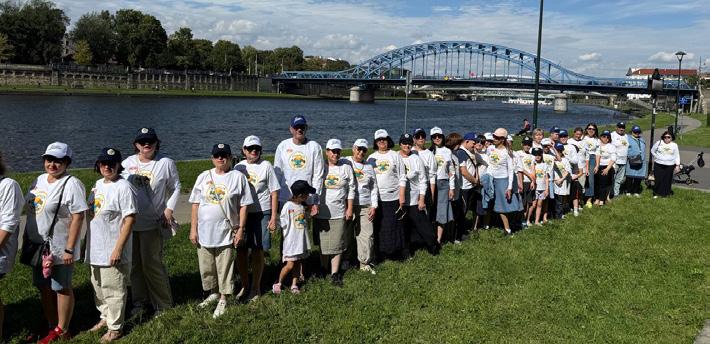


al states, with Ukrainian-speaking staff trained to support families affected by trauma.
For young children, the camp offers a structured daily routine filled with creativity, fun and gentle learning. They enjoy storytelling sessions, Jewish-themed crafts, outdoor play, music and baking workshops, all within a nurturing and familiar environment. These
activities allow children to reclaim moments of normal childhood, something many have missed over the last few years.
Older children and teenagers participate in more in-depth experiences that combine education, creativity and peer connection. They explore Krakow’s Jewish quarter, including visits to the Remuh Shul and historic cemetery and learn about the legacy of Jewish life in the region. Team games, group challenges, Jewish songs and discussions about Jewish identity and values are designed to build resilience and pride.
“We have developed this program knowing that healing does not look the same for everyone,”



said Rabbi Levi Stambler. “Younger children need safety and play. Teenagers need meaning and belonging. Parents and grandparents need a space to reconnect and reflect. Our goal is to meet each person where they are and give them the tools to move forward.”
For adults, including parents and grandparents, the camp offers learning sessions rooted in Torah texts and Jewish history, exploring topics such as Jewish continuity, Israel as a spiritual homeland and the power of intergenerational faith. Family-focused activities, such as challah baking and Jewish music workshops, create shared moments that bridge generations and help restore the sense of unity that many families have lost due to war.
“This isn’t just a children’s program,” said Chabad of Poland Di-
rector Rabbi Sholom Ber Stambler. “It is a place where entire families come together to breathe, to laugh and to remember what it feels like to be whole. A grandfather seeing his grandchild dance to a Hebrew song, a mother watching her child learn about Jewish history with pride, these are moments of profound healing.”
Alongside the educational and spiritual programming, participants have enjoyed a variety of recreational outings. The group visited interactive museums, explored Wawel Castle Park, toured Kazimierz and experienced a sunset boat ride on the Vistula River. They also visited an amusement park, enjoyed a science-themed outdoor museum and are preparing for a festive Shabbat with a challah baking workshop.
“This is our third year hosting
this retreat and each time we see more clearly how deeply needed it is,” said Chabad of Poland Co-Director Rabbi Mayer Stambler. “We are not just responding to a crisis. We are helping people reclaim their Jewish lives and their sense of the future. This program reaches everyone, from toddlers to great-grandparents, with the message that they are part of something enduring and meaningful.”
Since the start of the Russian incursion into Ukraine, Chabad of Poland based in Warsaw has opened its doors to Ukraine’s Jewish community offering refuge, transportation, kosher food, medical aid, financial and material assistance, childcare, educational and social services, communal activities and administrative and legal aid to tens of thousands displaced by the conflict. Since the start of the war, Chabad in Poland has seen its expenses rise by more than US$3 million. For more information or to contribute to relief efforts, please visit: www.saveajew.org.




Sunday to Thursday: 12pm - 10pm Friday: 11am - 3:30pm OPENING HOURS Scan the code to order!





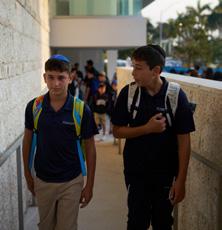



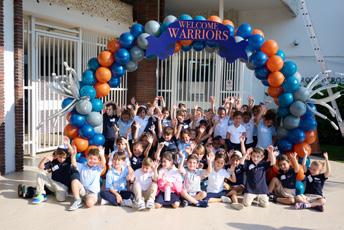


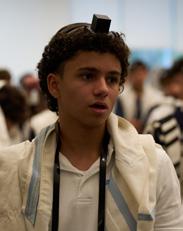

Hebrew Academy Miami Welcomes 670 Students for an Inspiring New School Year
There’s nothing like the first days of school! This week, over 670 students walked through the doors of Hebrew Academy in Miami Beach, ready to learn, grow, and connect. From early childhood through Grade 12, we’re looking forward to a year of Torah, purposeful learning, and building strong bonds with one another and with Am Yisrael.
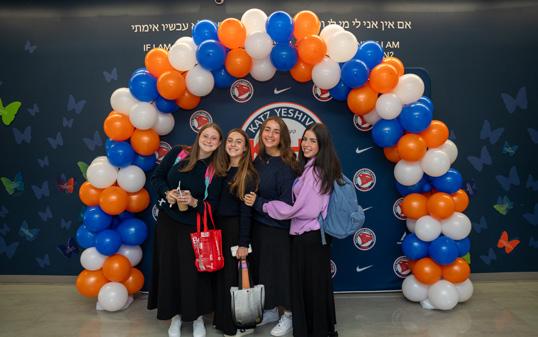

The energy on the Katz Yeshiva campus was incredible as we welcomed back everyone for the first day of school. With 502 students filling the hallways and classrooms, the building was alive with excitement, smiles, and anticipation for the year ahead. To kick off the new year with joy, students gathered together for a lively Rosh Chodesh chagigah. The music, dancing, and school spirit set the perfect tone for what promises to be a year filled with growth, learning, and celebration



PALM BEACH - American Friends of ELEM, the American partner of Israel’s leading nonprofit for at-risk youth, participated in the inaugural Jewbilee, hosted by the Jewish Federation of Palm Beach County at the Mandel JCC Boynton Beach, on Aug. 17.
The Florida chapter of American Friends of ELEM spotlighted the nonprofit’s work in providing safe spaces, crisis intervention and emotional support for youth in need.
As the new school year begins, thousands of children in Israel are returning to classrooms
while coping with trauma and post-traumatic stress.“American Friends of ELEM is committed to standing with Israel’s most vulnerable youth at a time when their needs are greater than ever,” said Liora Attias-Hadar, CEO of American Friends of ELEM. “Events like Jewbilee allow us to connect directly with the community in Palm Beach and show how, together, we can help young people rebuild stability and hope.”
ELEM meets with the president of Israel each year, in which they officially submit a report breaking down the issues for at-risk youth.

ELEM also participates in official Knesset committees, giving a voice to the voiceless.
ABOUT AMERICAN FRIENDS OF ELEM: American Friends of ELEM supports ELEM/ Youth in Distress in Israel, the country’s leading nonprofit for at-risk youth. Founded in 1983 by Jewish-American professionals, ELEM serves more than 13,000 young people each year from all sectors of Israeli society through street outreach, shelters, trauma support, and workforce programs. American Friends of ELEM raises vital funds and awareness in the United States to help sustain and grow these life-saving services.

Tzofim North America and Tzofim Garin Tzabar mourn the passing of our dear friend, Stephen Muss, who passed away on Saturday, August 23, 2025, at the age of 97.
Muss was more than a philanthropist. He was a partner, a visionary, and a proud Zionist who believed deeply in the strength of Jewish youth and in the enduring bond between North America and Israel. His generosity and commitment left a lasting impact on our movement and community.
Among his many acts of support, Stephen played a pivotal role in the renovation of the Lone Soldiers Village in Ra’anana, home to 300 young men and women of Tzofim Garin Tzabar serving in the Israel Defense Forces. Thanks to his dedication, these soldiers, far from their families, were able to find a home filled with warmth, dignity, and care.
Muss' life reflected his profound devotion to the Jewish people and Israel. His leadership, generosity, and belief in the next generation inspired all who knew him. His legacy will live on in every Tzofim gathering, in every Tzofim Garin Tzabar home, and in the lives of countless young people whose paths he helped shape.
We extend our heartfelt condolences to Muss' family. May his memory be a blessing, and may we continue to honor his legacy through our shared mission and values.
Tzofim North America



By Dr. Chaim Y. Botwinick

The phrase disconnecting in order to connect is a most powerful concept and approach in a variety of contexts. But, from an educational perspective, it suggests the need to consciously separate ourselves from the use of technology in order to come in touch with the human side of our daily lives.
As we know, there are those who firmly believe that in 2025 the use and application of technology is so paramount, essential and overarching that disconnecting from it, even for a limited period of time, can be extremely challenging and difficult. By the same token, there are many others, especially in education, who are vehemently opposed to the continued use and/or dependency on technology (e.g. the use of smartphones) at the risk or at the expense of complete and uncompromising focus and attention on other aspects of our lives, especially our focus on education.
Either way, in light of current research in education, it is a well-accepted notion that contin-
ued use and reliance on technology in order to advance our lives can be most addictive, and detriment to our state of being and cognition and even to independent higher-order problem solving.
Adding to this complexity are the growing number of schools that no longer permit their students to bring smartphones to school; and, if they do bring these devices to school, they end up experiencing harsh consequences. These consequences include the confiscation of these personal communications devices, or dismissal from school following several warning and infractions.
With regard to home use, today, more and more parents and families have unfortunately relaxed their demands for limiting their children’s use of technology. To be sure, several years ago with the dissemination and impact of research on cell phone use and its impact on children (see articles on “Digital Citizenship”), and parenting best practices, many more parents were more aware, conscientious and stringent about their children’s exposure and use of electronic devices. Today however, we are unfortunately beginning to see the pendulum swing in the opposite direction, as more parents are relaxing their requirements for cellphone use. This has led to an erosion of parental standards and requirements for child smart-phone use.
This reality may be due in part to a growing number of working
and career-focused young parents who are now more time-starved and consequently are no longer able to provide the required guidance and supervision of their children. In addition, we are now witnessing increased social and peer pressure on our children to use these devices for digital gaming and social media posts, as well as a host of other societal pressures.
This reality is exacerbated by the advent and more recent use and application of AI (“artificial intelligence”) technology – a phenomenon which has profound impact on our lives, education and on society at large.
As an example….in order to more fully understand and appreciate the impact of digital technology on our lives, one has only to observe the number of families eating together at a table in restaurants. Just observe how so many families sitting at the table together have their eyes totally focused and glued to their smartphones. (This includes parents). Could the information they are all viewing on their devices via email, texts and social media posts possibly be more important than a quite peaceful meal together with family? The answer is obvious.
Just think about this example, and many others which exemplify how technology has taken over or preoccupied our lives – especially smartphone use. What used to be invaluable quality quiet downtime time with family over a meal in a restaurant (or even at home),

has now evolved into a totally impersonal gathering, disconnected from one another.
Another example which can have a far more detrimental short and long term impact on child development, behavior, family social interaction and cohesiveness is when a child returns home from school and is craving for a parent’s undivided attention. This child is then confronted with a well-intentioned father who is continuously engaged in business conversations from home on a cell phone and a mother who just cannot stop chatting with friends and family –at the expense of spending quality time with the child or children.
This disconnect from our children results is lost precious quality time …most of which we will never ever be able to make up or compensate for.
As a side, if these family dynamics continue in the home thereby ignoring the child’s craving for social interaction, it will in all probability encourage the child to default into his or her comfort zone by also gravitating to non-human interaction through the continued use of gaming devises and smartphone use.
A simple comment by a parent to the child, like “how was your day in school” can have a tremendously powerful and positive impact on the child.
The opposite is also true. The silence from a parent can be detrimental and deafening to a child who is craving for attention, or who is in dire need of a parents undivided and uncompromised attention.
This my friends is not a healthy outcome for the child or family. It should be obvious by now to

understanding why it is important to disconnect. Therefore, the first challenge for us is to develop a compelling case as to why disconnecting is essential.
There are essentially four, (and even more) compelling reasons to disconnect. They may include: Recharging and self-care: disconnecting from overwhelming stimuli in order to rejuvenate and prioritize well-being; Improving focus and productivity: stepping away from distractions in order to concentrate on what’s truly essential or important;
Enhancing relationships: disconnecting from technological distractions in order to develop,
forge and nurture meaningful connections with others; and, Fostering creativity and reflection: allowing more time for introspection, imagination and innovative thinking and reflection.
The second challenge is how to disconnect?
The challenge of how to assist our children and young adults to disconnect is one which is truly difficult and challenging, especially for those who are greatly dependent on the technology for school, work and/or social interaction.
Several ways to disconnect from our devices, especially smartphones, laptops and digital gaming devices are by setting boundaries through establishing techfree zones or times during the day

such as during meals, downtime (recess and vacations) or before retiring for the evening. In fact, the most detrimental time to view blue screens on our phones and devices is right before bedtime. This blue-light exposure stimulates the brain which makes it very difficult for the brain to reach a restful state conducive to sleep.
After setting boundaries, the next level relates to practicing mindfulness by engaging in activities that promote presence, such as deeper higher order learning and study, reflection and simple walking.
The scheduling of downtime by allocating time for relaxation, reading, learning and hobbies is also essential.
The fourth way is to actually plan what I refer to as digital de-
toxes. This suggests considering device-free days or weekends to reset, recharge and reboot our minds and to minimize technological stimulation, manipulation and interdependence.
Finally, the fifth challenge relates to when to disconnect.
Here too, there are essentially three times or periods for disconnecting.
They include:
During family or social gatherings by prioritizing face-to-face interactions with others;
Prior to bedtime by avoiding screen and stimulating activities to promote better and deeper sleep;
When feeling overwhelmed by taking a step back and recharging before returning to specific chal-

lenges or tasks.
In order for our schools to provide leadership in this critical area, it is essential that they adopt and enforce policies regarding the use of all electronic/digital devises on school campus.
These policies should restrict the use of smartphones, smart watches or other smart devices. In fact, all students, (if indeed they must take their cell phones to school for security purposes), should check their phones into an assigned secured space located in the school’s administrative office. They can only retrieve these devices after school is dismissed. Failure to comply with these policies or using these devices

A growing Business Equipment Solutions Company is seeking a reliable, organized, and proactive Office Manager to oversee day-today operations in a mid-sized, fast-paced office environment.
The ideal candidate will have previous experience in office management or administrative leadership role and will ensure that the office runs smoothly, team members are supported, and business processes are carried out efficiently and professionally.
Hours: Full-time | Salary: $80k | Job #963
To find out more or apply
Email info@elevatecareer.com
Or WhatsApp us at: +1 (929) 265-7319
Looking for a worker with experience in refurbishing electronics. Experience with Inventory management system preferred. Room for growth to a manager position.
Contact Shmulie: 617 653 8795
$80,000-$120,000/year Miami, Florida
A Florida Medicaid applications company is hiring a sales manager. Job involves frequent travel in Florida to law firms, facilities, and professional events to sell the companies services. Looking for someone with a strong marketing or sales background, preferably in professional services as well as proven success building and managing referral relationships. Candidate must have excellent communication and presentation skills. Experience with legal, elder law, or Medicaid planning a plus. The candidate must be based in Florida. Salary is commensurate with experience and hours.
Hours: Mon-Thurs, 9 am-5 pm, and Fri, 9 am-1/2 pm.
Please email your resume to officeemployee101@gmail.com.
Looking for someone for a position in NMB cashier
really reliable person whom can multitask in an elite candy store.
Full time position: 10-6 m-w | 10-7 Thursday 9-430 Friday | 10-6 Sunday
Min wage $13-15
Pls text 9545586658
Very friendly environment. Lovely ambiance
is looking to hire personel security professionals with a D and G license. Experience required.
Looking for immediate hire.
Contact Ron 305-724-8890
Our team is growing and we’re hiring labor workers in the Hollywood area. Reliable work, competitive pay, and a great team to work with!
Must be legal to work in the US. Must have valid driver license.
*APPLY NOW!
Call, message, or email for details. 786-418-9369 | romo.mgmt@gmail.com
I am looking for a professional kitchen appliance maintenance guy. Please, reach out to me: Mordechai +17866722584
Looking for part time property manager. Looking to hire immediately.
Full time. Locals only.
Requirement: A. Property management experience only (min 2 years)
1) Needs a car to drive to Miami Beach / Surfside
2) Speaks Spanish Reply to 786-766-8782
during school time or on school campus should result in the confiscation of the devices. These devices will only be returned in person to the parent of the student.
If these infractions continue for a second time, the student will be subject to mandatory detention followed by dismissal and/or possible expulsion, depending upon circumstances.
All schools must develop a zero tolerance policy from the get-go. No excuses, no do-overs and no apologies.
If this policy sounds harsh, it’s because it is.
Compromising these school policies can have a detriment impact on students, their academic performance and welfare…in addition to their impact on other classmates.
As the use of communications technology becomes more prevalent in our homes, schools and society, it will be absolutely essential for us to discover ways of controlling it their use…so that it does not end up controlling us.
One of the most daunting unknowns for the foreseeable future will be how our schools and communities use and apply AI and AI filters in their respective institu-
tions and their environments.
Much has been written about the impact of AI on teaching and learning. Nevertheless, very little is now known about its long-term impact on cognition, emotions, behavior and social interaction.
It is for this reason (among others) that our Jewish educational communities must be very careful and diligent about its uses and potential misuse.
As we move forward into the future, I would like to humbly urge our educational communities, including day schools, yeshivot and teacher training institutions to take this challenge seriously.
This will require significant pre-service and in-service training and professional develop for our senior educational leaders, teachers and teacher specialists. It will also require continued parent education in order to sensitize and prepare parents for the wide array of unknowns regarding the impact of technology on our children.
Knowing when and how to disconnect from technology may at first blush appear to be somewhat obvious. But as we know, when it comes to technology, enough is unknown in order to caution all of us to be careful, diligent and circumspect regarding its evolving

use.
Like every new and evolving man-made innovation, we may not necessarily know everything about the impact of technology on our children. But one thing is certain….we don’t know what we do not know. This reality should be enough for all of us to be extremely careful, diligent and cautious.
Finally, in light of the daunting challenges presented in this article, it is suggested that all of our schools create a technology strategic plan with safeguards, requirements and policies.
At the end of the day, we will all be tested by the manner in which we “disconnect to connect” – an endeavor which is essential for our future growth and development and for the health and wellbeing of our students and children.
Dr. Chaim Botwinick is a senior executive coach and an organizational consultant. He served as president and CEO of the central agency for Jewish education in Baltimore and in Miami; in addition to head of school and principal for several Jewish day schools and yeshivot. As an Influencer, he has published and lectured extensively on topics relating to education, resource development, strategic planning and leadership development. He is co-founder of LEV Consulting Associates and producer/host for Chinuch Horizons podcast. Dr.Botwinick is Author of “Think Excellence: Harnessing Your Power to Succeed Beyond Greatness”, Brown Books, 2011
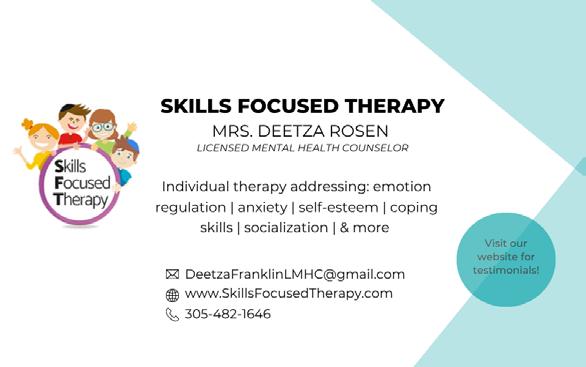


1. Smaller Classes – There are fewer kids in Miami and Broward schools this year because more families are trying homeschool or private schools.
2. Learning at Home – Did you know more than 150,000 kids in Florida learn at home instead of going to school? That number has grown a lot in the last 5 years!
3. No-Tax Shopping – Every August, families get a special shopping month where they don’t have to pay sales tax on things like clothes (under $100), backpacks, and school supplies (under $50).
4. School Costs – On average, families in Florida spend about $858 to get ready for school. That covers
clothes, shoes, supplies, and sometimes electronics like tablets or laptops.
5. Free Backpacks! – Many community events in Miami and Broward give out free backpacks and school supplies so all kids are ready for the first day.

6. Safety First – Teachers in Broward County now wear a special button to call for help quickly if there’s an emergency.
7. No Phones in Class – Broward schools are saying “no cellphones during school hours” so kids can learn without distractions.
8. Awesome Schools –Some Miami high schools are ranked among the best in the whole United States!
Email us your favorite riddle for a chance to be featured in an upcoming issue.


TAFFY, NOUGAT, FUDGE, TOFFEE, CARAMEL, BONBON, PEANUT BRITTLE, SOUR BELTS, COTTON CANDY, MARSHMALLOW, PRALINE, JAWBREAKER, ROCK CANDY, JELLY BEANS, CHOCOLATE BARK, CANDY CORN, BUBBLE GUM, CHOCO DIPS, FRUIT CHEWS, SUGAR RUSH
Jokes Answers
1. What do you call a chocolate car?
2 Why did the lollipop go to therapy?
Come in and show us you’ve completed this fun page for a sweet treat!! connect the dots



816-6820


By Jamie Geller
• 15 MIN DURATION • 15 MIN PREP TIME • 4 SERVINGS •
This crunchy salad is nice light way to use leftover beef. Cut down on your chopping prep time by using shredded cabbage and carrots.
Ingredients FOR DRESSING:
• 1 clove garlic
• 1 tablespoon grated ginger
• 1 lime, zested and juiced
• 2 tablespoon sesame oil
FOR SALAD:
• 2 cup shredded red cabbage
• 1 cup chopped green onion
• 1/2 cup shredded carrots
• 1 red bell pepper, thinly sliced
• 1/2 hothouse cucumber, cut in half lengthwise and sliced
• 1/2 cup fresh cilantro, chopped or 1 teaspoon dried coriander
• 1/4 cup fresh mint, chopped
• 1 pound leftover cooked beef, shredded or chopped
• 2 tablespoon sesame seeds

In a small bowl, combine garlic, ginger, lime zest, juice and sesame oil. Stir to combine and set aside.
In a large bowl, combine cabbage, green onion, carrots, bell pepper, cucumber, cilantro, mint and beef.
Toss with dressing and evenly distribute between bowls. Garnish with sesame seeds.
Jamie Geller is the Chief Media and Marketing Officer at Aish. She is also a bestselling cookbook author, celebrity chef, television producer, and businesswoman. She’s the author of eight cookbooks and the founder of Kosher Media Network.
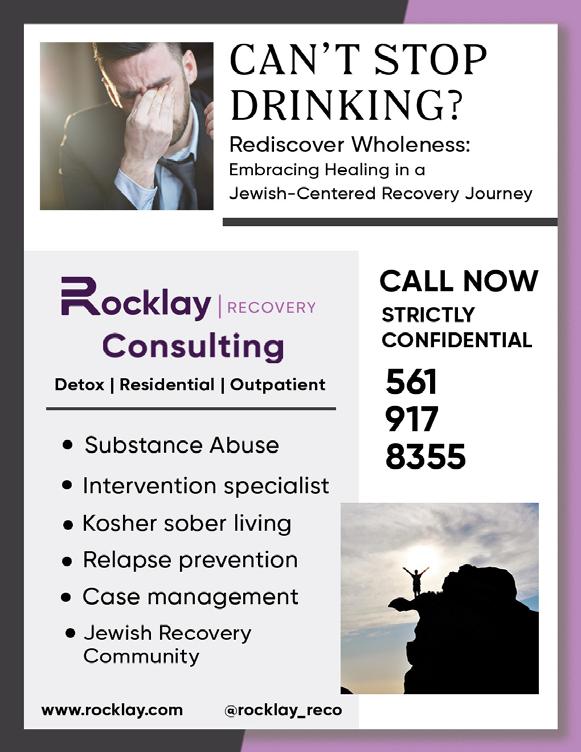

In 2015, a quiet street in Jerusalem was named for Moshe (Miklós) Krausz, a man whose extraordinary heroism during the Holocaust had gone largely unrecognized for decades. A Hungarian Jew and leader of the Palestine Office of the World Zionist Movement in Budapest, Krausz orchestrated one of the largest rescue operations of the Holocaust - saving at least 40,000 Jews, with some estimates as high as 100,000.
To appreciate the scale of his achievement, consider that Oskar Schindler - whose name is universally known - rescued 1,200 Jews. Yet Krausz’s story remained in the shadows. When he died in Jerusalem in 1986, it was in obscurity and without public acknowledgment of his heroism.
When the Nazis invaded Hungary in March 1944 and began deporting Jews to concentration camps, Moshe Krausz partnered with Swiss Vice-Consul Carl Lutz to launch a daring rescue operation. Lutz had negotiated permission to issue protective Swiss documents - called Schutz-Passes - for 8,000 Hungarian Jews emigrating to Palestine. They deliberately interpreted the quota as applying to families - not individuals - and issued tens of thousands of Shutz-Passes.
To shelter those under protection, they obtained diplomatic immunity for more than 75 buildings across Budapest, turning them into safe houses. The most famous was the abandoned glass factory - later known as the “Glass House” - where over 3,000 Jews found refuge for several harrowing months.
Zionist youth group members played a vital role, smuggling Jews
By Gedaliah Borvick
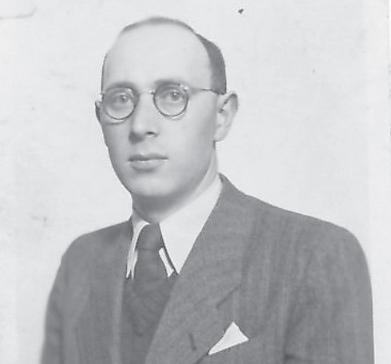
into these shelters - often dressed as Nazi officers - and distributing forged documents, sometimes with the ink still drying. The scale, coordination, and daring of the operation were unprecedented. Why, then, did such a monumental effort remain virtually unknown for so long?
The answer sadly lies in political infighting. Moshe Krausz was affiliated with the Mizrachi movement, while the leadership of the Yishuv in British Mandate Palestine - and later the State of Israel - was dominated by Mapai (the Labor Party). Separately from Krausz, Mapai had formed the Budapest Rescue Committee and appointed Israel Kasztner as its leader.
After the war, Kasztner was accused of collaborating with the Nazis. In a high-profile trial, Krausz testified against him, accusing Kasztner of undermining the Swiss document scheme by informing the Nazis that the 8,000 authorized Schutz-Passes were for individuals, not families. This betrayal, Krausz said, jeopardized the entire rescue effort. His testimony turned him into a political pariah, and for decades, his contributions were erased from public memory.
Carl Lutz, Krausz’s Swiss partner, was honored early on by Yad Vashem as one of the Righteous Among the Nations. Lutz himself insisted that Krausz was the true mastermind behind the rescue. When the Jewish National Fund informed Lutz he would be inducted into its “Golden Book,” he requested that the honor go instead to Krausz. But at the official ceremony, Krausz’s name was never mentioned - only Lutz, again and again, spoke of the man behind the mission.
It wasn’t until the publication of Dr. Ayala Nadivi’s 2014 book Between Krausz and Kasztner: The Battle to Save Hungarian Jewry that the truth began to resurface. Disturbed by the near-complete absence of Krausz’s name in Yad Vashem’s archives, Nadivi called the omission a tragic injustice. No other individual-led rescue effort saved as many Jews during the Holocaust - and if that weren’t enough, Krausz’s plan also served as a blueprint for several subsequent operations that saved thousands more.
Slowly, recognition began to take shape. In addition to the Jerusalem street naming, the Beit Ha’Edut museum in Nir Galim built a fullscale replica of the Glass House and created a permanent exhibit honoring Krausz’s legacy.
Moshe Krausz never sought fame. He acted to save lives. It is only right that the world now remembers the hero it once overlooked.
Gedaliah Borvick is the founder of My Israel Home, a real estate agency focused on helping people from abroad buy and sell homes in Israel. To sign up for his monthly market updates, contact gborvick@gmail. com. Please visit his blog at www.myisraelhome.com.



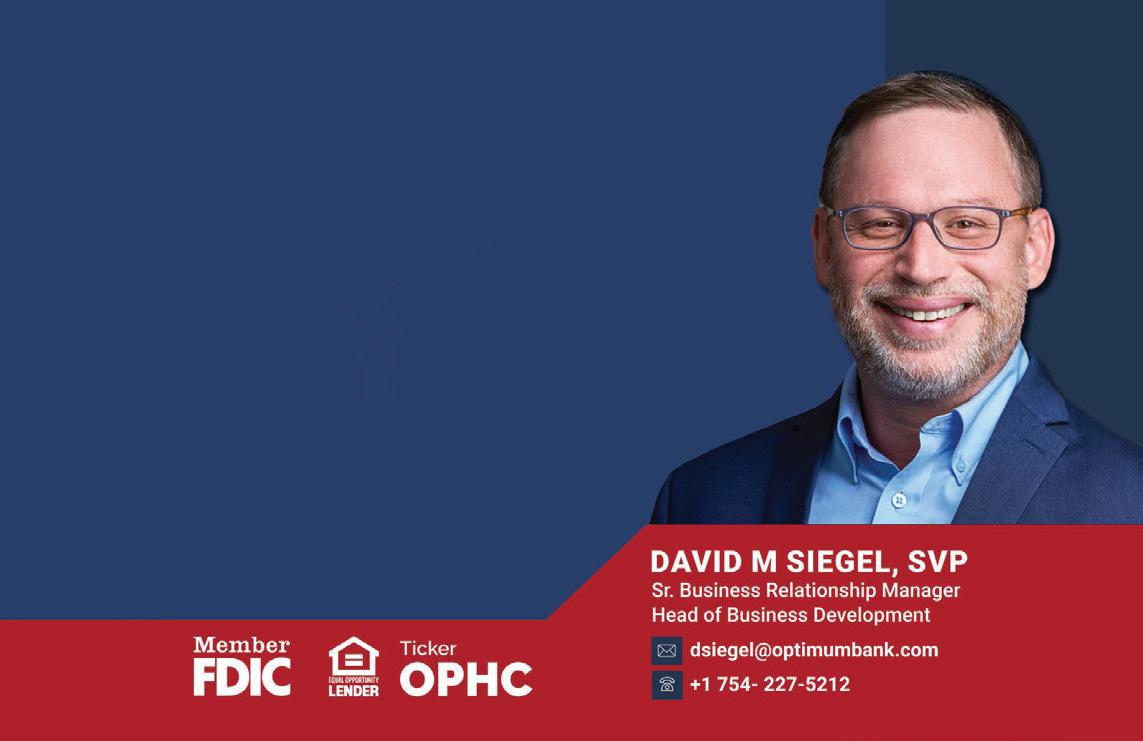
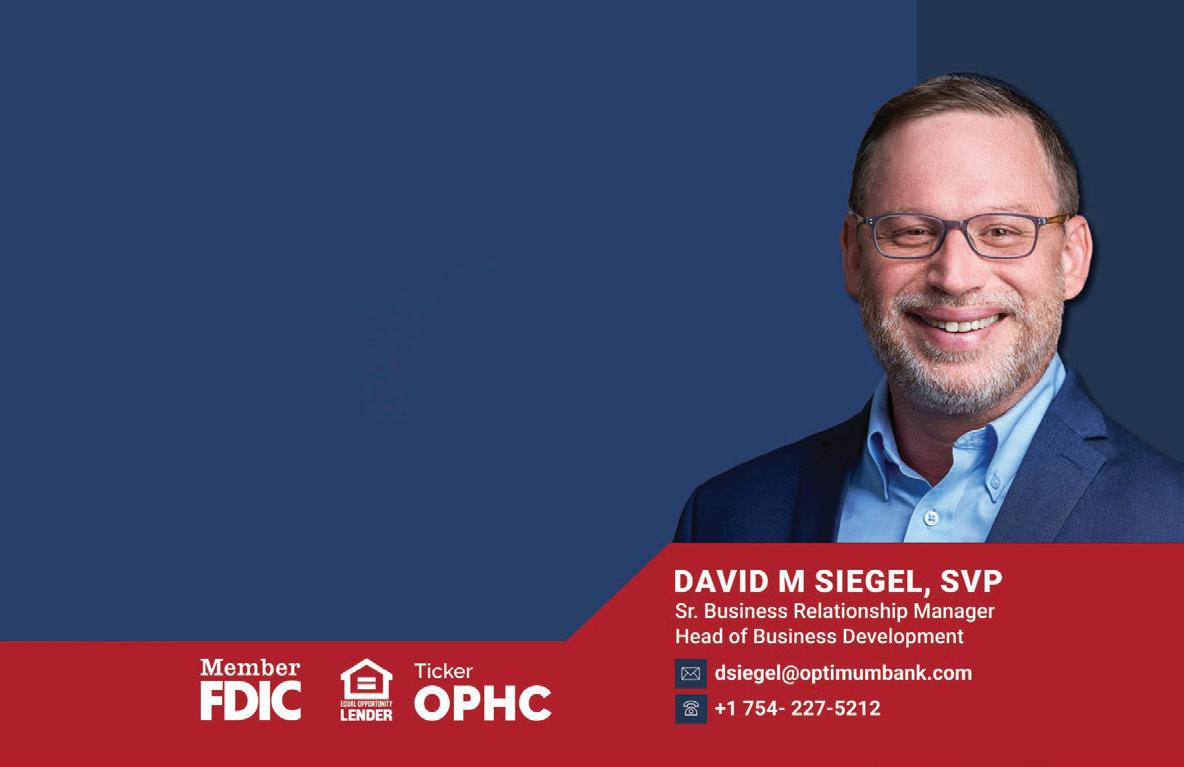


























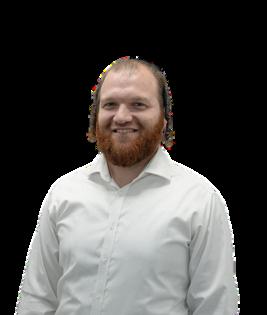










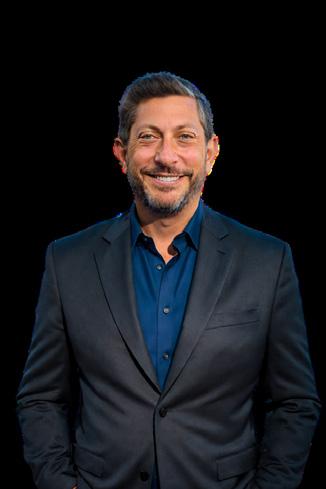


(732) 996-2601
449-9692 Majestic Isles- 3 bdrms, 2 full baths, 1,441sf

$3,600/M

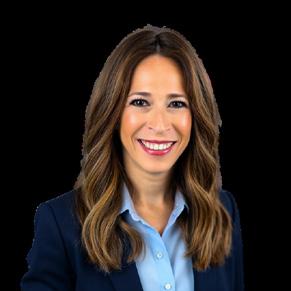
The Carlisle- 1 bedrooms, 1 baths, 905sf
$2,700/M

The Spiaggia- 2 bdrms, 2 full baths, 927sf $3,500/M
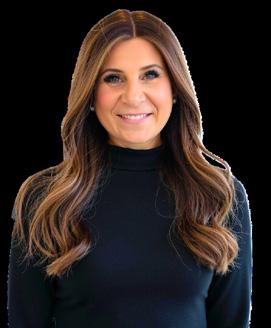


2 bedrooms, 2.5 baths, 1,383sf $315K

3 bdrms, 2 full baths, 1,144sf $3,800/M
3 bedrooms, 1 baths, 997sf
$299K

By Shmuel Shayowitz
Most people treat ChatGPT like a fancy search engine. They type in a quick question, get an answer, and move on. But those who really understand how to use it know that the quality of the response depends entirely on the quality, and depth, of the prompt. The power isn’t in asking a question - it’s in asking better ones, and then building on them. The success of the output depends entirely on the precision of the input. You are the guide. You create the results with how you frame the prompts. You shape the output by how you frame the input. And that’s not just how AI works. That’s exactly how our brain works, too. We prompt ourselves all day long, whether we realize it or not. The thoughts we think, the questions we ask ourselves, and the patterns we follow; They are all internal prompts. That same principle applies to how we think, especially when it comes to money. People genuinely want to improve their finances. They want to save more, spend less, and get ahead. But most of the time, they only ask themselves surface-level questions. “How do I save more?” “How can I make more money?” “Where does it all go?” These basic queries have no real clarity, no direction, and no depth. Remember, you shape the output by how you frame the input.
Improving your financial life isn’t just about tracking numbers.
It’s about understanding behavior. It’s the conversations you have with yourself – the quiet, internal, and often uncomfortable ones - that make the biggest difference. When you begin prompting yourself with real honesty and consistency, you start to prime your thinking in a way that actually shifts what you achieve. Change doesn’t happen at the surface. It happens when you go into the deeper layers. “What patterns do I keep repeating, and why?” “What emotion am I trying to satisfy when I spend like that?” “What habits are helping me, and which ones are quietly costing me?” That kind of self-prompting doesn’t just lead to a response. It leads to a revolution.
That’s what creates long-term results. Not a one-time response. Not a short-lived motivational spurt. With a process of asking better questions, making clearer choices, and following through, even when it’s inconvenientthat’s how habits form, and that’s how long-lasting change happens.
James Clear, in Atomic Habits, talks about how real transformation comes from the steps you take towards the kind of person you want to become. Every time you take a small step, make a better decision, pause before spending, or have a mindful check-in, you reinforce that identity. You’re not trying to be good with money. You’re becoming the type of per-
son who is better with money. And as Morgan Housel reminds us in The Psychology of Money, financial success is rarely about intelligence. It’s about behavior. It’s about managing your reactions, staying consistent, and giving your decisions enough time to work.
So if you’re serious about getting better results than what you have today, stop asking basic questions. Start asking better questions. When you keep prompting with intention, acting with purpose, and stacking the right behaviors, change becomes inevitable. And when that happens, your finances don’t just improve - you do. To get more exclusive insights, join my whatsapp group at https://info.approvedfunding.com/shmuel.shayowitz
Shmuel Shayowitz (NMLS#19871) is a highly regarded Real Estate & Finance Executive, Writer, Speaker, Coach, and Advisor. He is President and Chief Lending Officer of Approved Funding, a privately held national mortgage banker and direct lender that has facilitated over $3 billion in mortgage funding. Shmuel has over twenty years of industry experience, holding numerous licenses and accreditations, including certified mortgage underwriter, licensed real estate agent, residential review appraiser, and accredited investor, to name a few. Shmuel has successfully navigated through many changing markets and business landscapes, making his market insights and experience well-coveted within the real estate industry. He can be reached via email at Shmuel@ approvedfunding.com.









